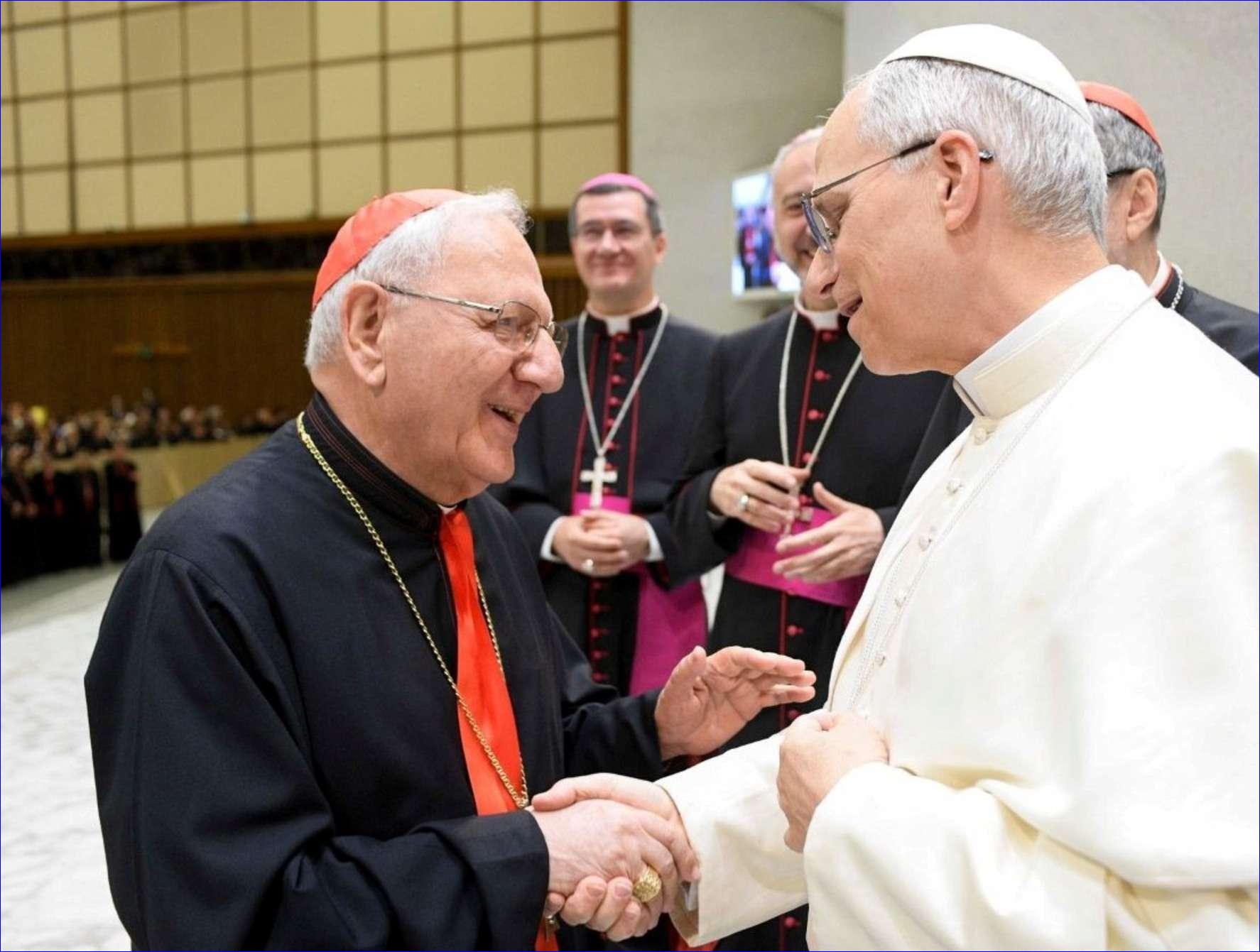


The Pope addressed Catholics from the 23 sui iuris Eastern Churches in communion with Rome gathered at the Vatican for their Jubilee celebration on Wednesday, affirming the need for the universal Church to "cherish" their traditions.
The Chaldean Patriarch of Babylon, Cardinal Louis Raphaël I Sako, told The Tablet he hoped Pope Leo would engage regularly with Eastern Catholics, visiting them in their historic homelands and meeting their Churches' patriarchs to discuss "our difficult situation and our future".
He said the Churches "also need political help" from the Pope, particularly in the Middle East where their numbers have dramatically declined over the past 20 years but where they still have "a vocation".
"He can ask countries to respect human rights, to respect the dignity of persons and their freedom," Sako said.
The patriarch said he hoped Pope Leo would regularly meet the Eastern Catholic patriarchs -- echoing other cardinals' calls for more collaboration with the papacy -- and work with the Dicastery for the Eastern Churches. "We can explain the realities of our countries," he said.
The patriarch also reported speaking to the dicastery's prefect Cardinal Claudio Gugerotti, who promised "to take care of our Churches", emphasising the importance of prioritising the "unity and integrity of the faith".
In his address to members of the Eastern Churches on Wednesday, Pope Leo said he would direct the dicastery to establish norms for Latin bishops to support the diaspora of Eastern Catholics living in their dioceses to help them preserve their traditions.
"The contribution that the Christian East can offer us today is immense," the Pope said. "Who better than you can sing a song of hope even amid the abyss of violence?"
Sako said he would be "wise to wait for a while" for a response to a report he submitted to Pope Francis in September after five bishops failed to attend the Chaldean synod that July, in what the patriarch said was a violation of their duties to him and to the synod.
Pope Francis did not take public action on the report before his death, but Sako said he was confident that Pope Leo would respond in time and "respect the synodality of our Church", because the 17 Chaldean bishops who did attend the synod had supported his actions.
Under Canon 43 of the Code of Eastern Canons which governs the sui iuris Churches, the Pope has "supreme, full, immediate and universal ordinary power in the Church".
"We should be patient and give him the chance to look at things closely," Sako said. "We are hopeful."
Commentators noted that despite his wide experience as a missionary and prior general of the Augustinians, Pope Leo had relatively little interaction with Eastern Churches. Sako nevertheless welcomed his election, saying he was "always speaking to him" during the congregations and the conclave and that the then-Cardinal Robert Prevost had complimented the simplicity of his Chaldean habit.
"He is very balanced, simple, humble, listening," Sako said, adding that his experience of dialogue with Islam through the Augustinians' historic presence in Algeria (particularly at the modern site of Hippo, where St Augustine was bishop) would be important for Chaldeans and other Catholics living in Muslim-majority countries.
The patriarch did not disclose further details of the conclave to The Tablet, but has faced criticism in Iraq after disputed claims that he reported a void ballot in a telephone interview with an Arabic-language television channel.
In the interview broadcast on 9 May on Charity Radio TV, a Lebanese outlet run by Maronite missionaries, Sako apparently revealed that one ballot during the conclave was declared void after a cardinal submitted two voting slips by mistake -- a story which has circulated widely from several sources since the end of the conclave on 8 May, though the cardinals are sworn to secrecy regarding the proceedings.
After criticism in Iraq of the purported indiscretion, the Chaldean patriarchate published a statement on 11 May denying that Sako had made any statements about the conclave except a written account for its website. It said that "for years there has been a certain group spreading lies" about the patriarch, referring to the nominally-Christian Babylon Brigades militia which he has publicly opposed.
In a personal statement the next day, Sako said he was the victim of "organised campaigns of provocation on social media" by "people who sell their honour and dignity for money or position".

or register to post a comment.